Walking into the gleaming atriums of Dubai’s malls or the polished boutiques of Abu Dhabi, it’s easy to feel that luxury fashion in the United Arab Emirates is reserved for the ultra-wealthy. I used to think the same. But after years of living here, shopping here, and frankly, making my wardrobe work on a budget, I’ve learned that finding luxury fashion on a budget is not only possible — it’s an art form. And in the UAE, it’s an art form with more opportunity than almost anywhere else in the world.
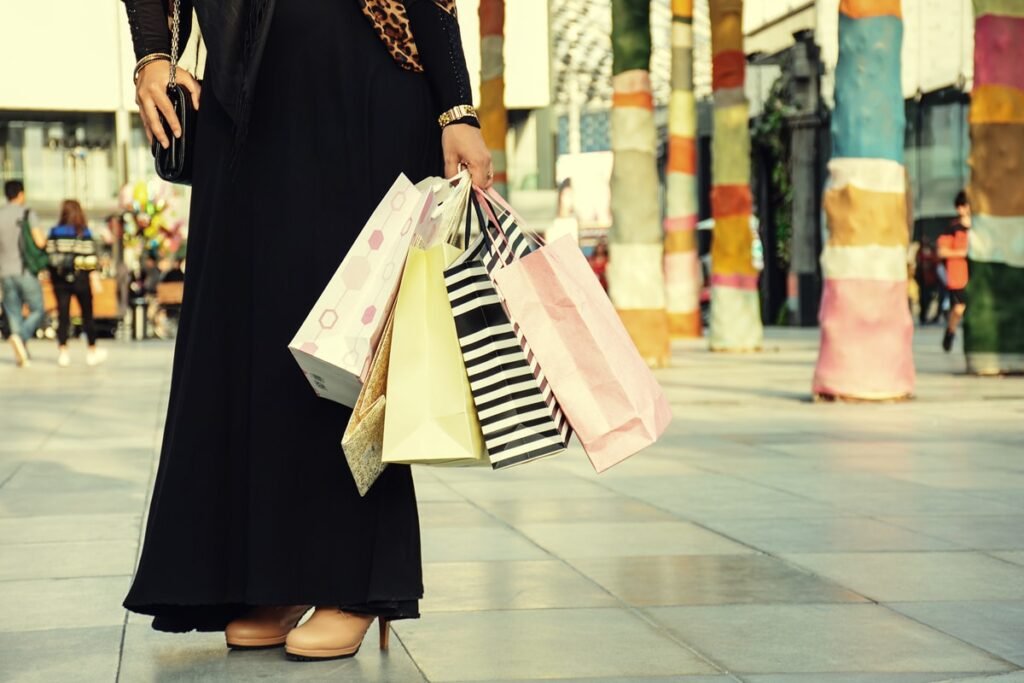
Outlet Malls – The Hidden Treasure Troves
I still remember my first trip to The Outlet Village in Jebel Ali. The Tuscan-inspired architecture made me forget I was minutes from Sheikh Zayed Road. Tucked inside were racks of Coach leather bags marked down by half, Armani Exchange dresses priced like mid-range high street, and Michael Kors totes you’d swear were fresh off the latest season’s runway. Discounts here regularly hit 70%, and you can browse in blissful air-conditioned comfort without the chaos of peak-hour mall shopping.
A short drive away, Dubai Outlet Mall on Al Ain Road takes things to another level. If The Outlet Village is elegance, this is a treasure hunt. Burberry coats, DKNY dresses, Marc Jacobs handbags — all at prices that would make a London shopper jealous. Their “Outrageous Sale” events are legendary; I once picked up a Hugo Boss blazer for less than the price of dinner at Zuma.
In Abu Dhabi, The Galleria Outlet on Al Maryah Island is more intimate, but just as tempting. Calvin Klein suits, Ted Baker occasionwear, Guess handbags — all lined up against a waterfront backdrop. It’s easy to lose hours wandering between rails of high-end bargains while sipping a coffee with a sea view.
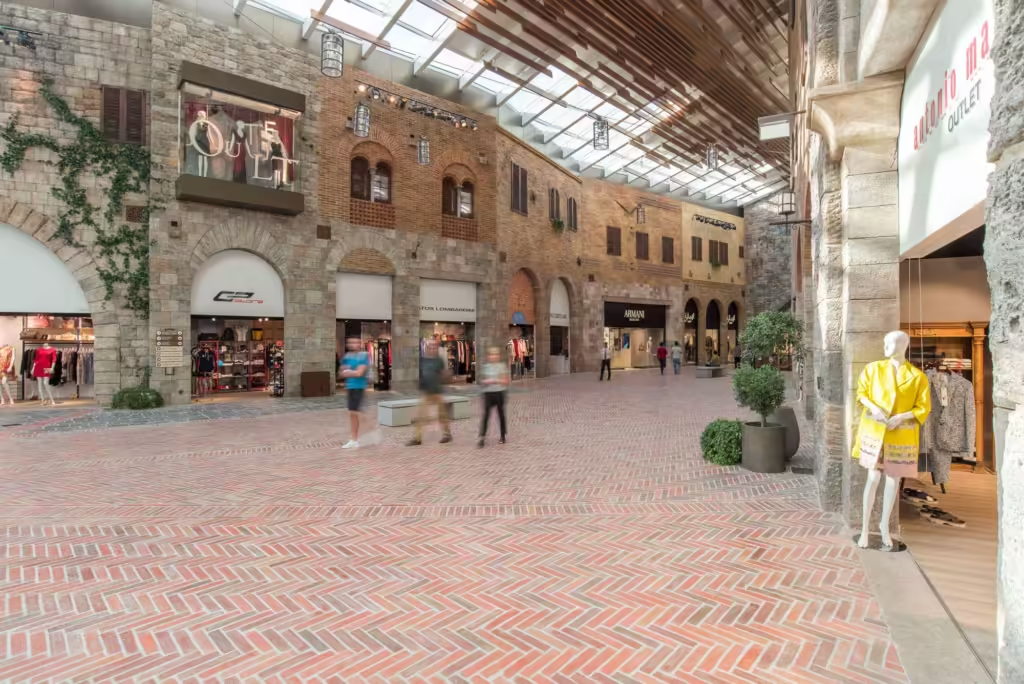
Seasonal Sales – When Timing Is Everything
If there’s one thing every seasoned UAE shopper knows, it’s that calendar timing can be the difference between paying full price and walking away with luxury for less.
Dubai Shopping Festival (DSF) every January and February is practically a national event. The Dubai Mall, Mall of the Emirates, and City Walk all turn into discount playgrounds for designer lovers. I’ve seen Valentino gowns drop 60% and Cartier fragrances go for half their usual tag. The energy is electric — think of it as fashion’s version of New Year’s fireworks.
Not to be outdone, the Abu Dhabi Shopping Season (December to January) delivers its own magic. Yas Mall, Marina Mall, and The Galleria slash prices on designer brands just in time for the holiday season. I’ve bagged eveningwear from Ralph Lauren here at prices you’d expect from an outlet — only these were straight off the main boutique floor.
And don’t forget Black Friday and Cyber Monday. The UAE embraces them with open arms. Bloomingdale’s, Harvey Nichols, and Galeries Lafayette all run promotions both in-store and online. One tip: sign up for newsletters in advance so you get early-access codes. That extra 12-hour head start often means the difference between scoring that Fendi crossbody and staring at a “sold out” sign.
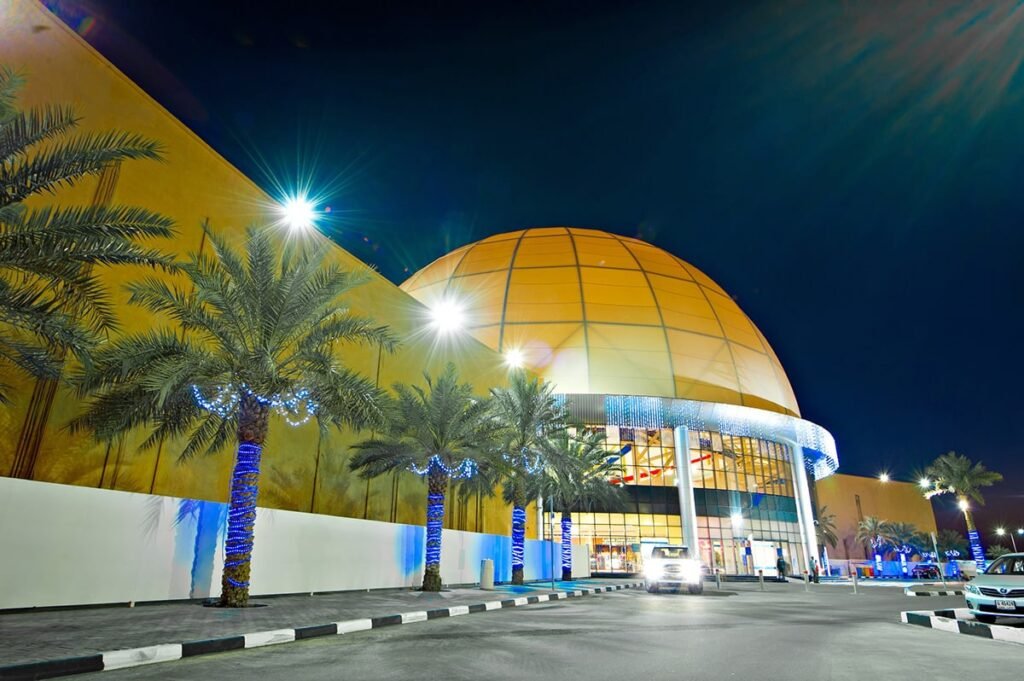
Online Marketplaces – Luxury at Your Fingertips
The pandemic changed my shopping habits permanently. Now, even when I can visit a boutique, I often start online.
Ounass has become my go-to for curated luxury delivered to my doorstep. Their Eid and National Day promotions are particularly strong. Plus, they often run flash sales announced only via email — I once grabbed a pair of Jimmy Choo heels at 55% off because I happened to check my inbox at the right time.
For pre-owned treasures, The Luxury Closet is unbeatable. Every piece is authenticated, and their instalment payment options make high-ticket buys manageable. I’ve bought classic Chanel flap bags here for a fraction of boutique price — the kind that looks even better once it’s lived a little.
And while Namshi is better known for casualwear, their luxury section quietly stocks Emporio Armani, Hugo Boss, and Calvin Klein at prices that dip sharply during seasonal sales.
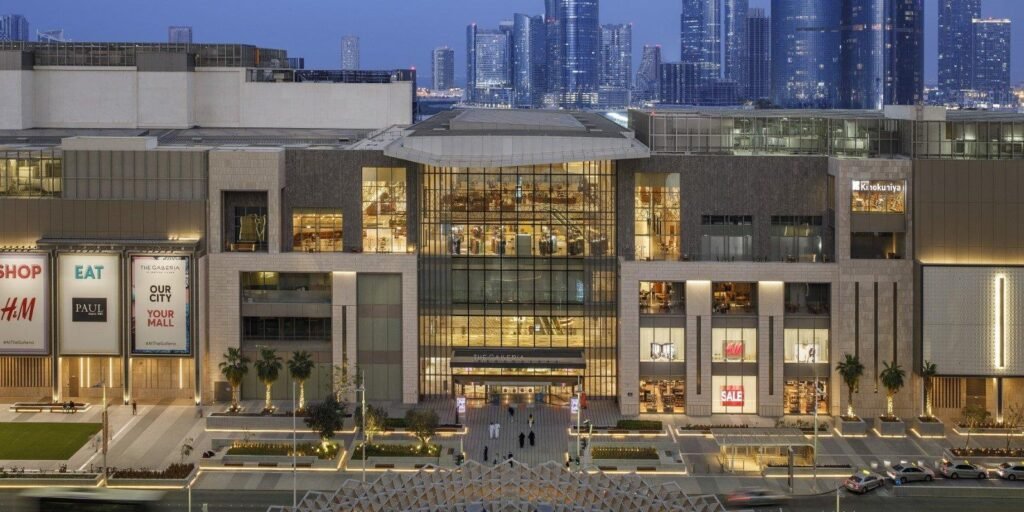
Insider Moves – Shopping Like You Belong in the Front Row
One of my favourite hacks is joining loyalty programs at Bloomingdale’s, Harvey Nichols, and Level Shoes. The perks aren’t just points — we’re talking exclusive previews of sale items and personal shopping invites before the doors officially open.
I also keep a close watch on local fashion influencers. Many get insider tips from brand reps about unadvertised flash sales or invite-only events. A well-timed Instagram Story from someone in the know has led me to Dior sample sales I’d have otherwise missed.
Speaking of sample sales — they’re gold. They’re rarely shouted about, often just a quiet email or WhatsApp to regulars. Brands clear showroom pieces or last season’s stock at prices so low it almost feels illegal.
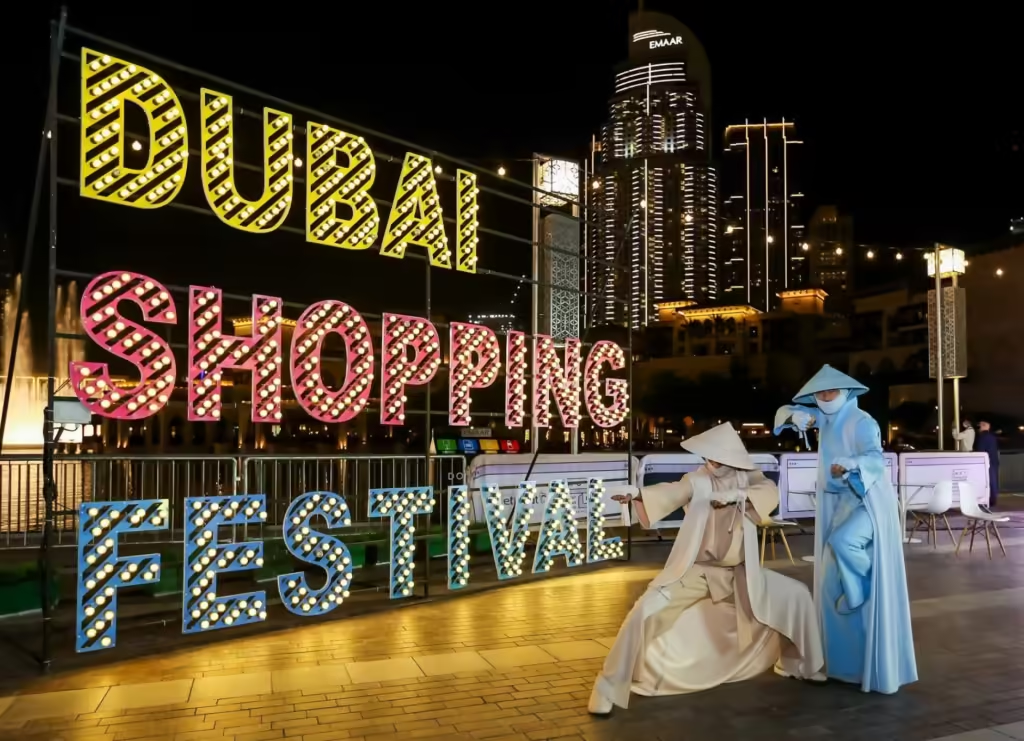
The Real-Life Wins
I’ve met shoppers who’ve built entire designer wardrobes this way. Lara Al Saadi, a Dubai-based fashion blogger, swears by her Outlet Village hauls and The Luxury Closet finds. Noura Al Mazrouei in Abu Dhabi marks her calendar for DSF and the Abu Dhabi Shopping Season without fail, calling them “the best months of the year for my wardrobe.”
And me? My last big win was a Saint Laurent Sac de Jour from The Outlet Village — 65% off, still in its dust bag, the kind of piece you keep forever.
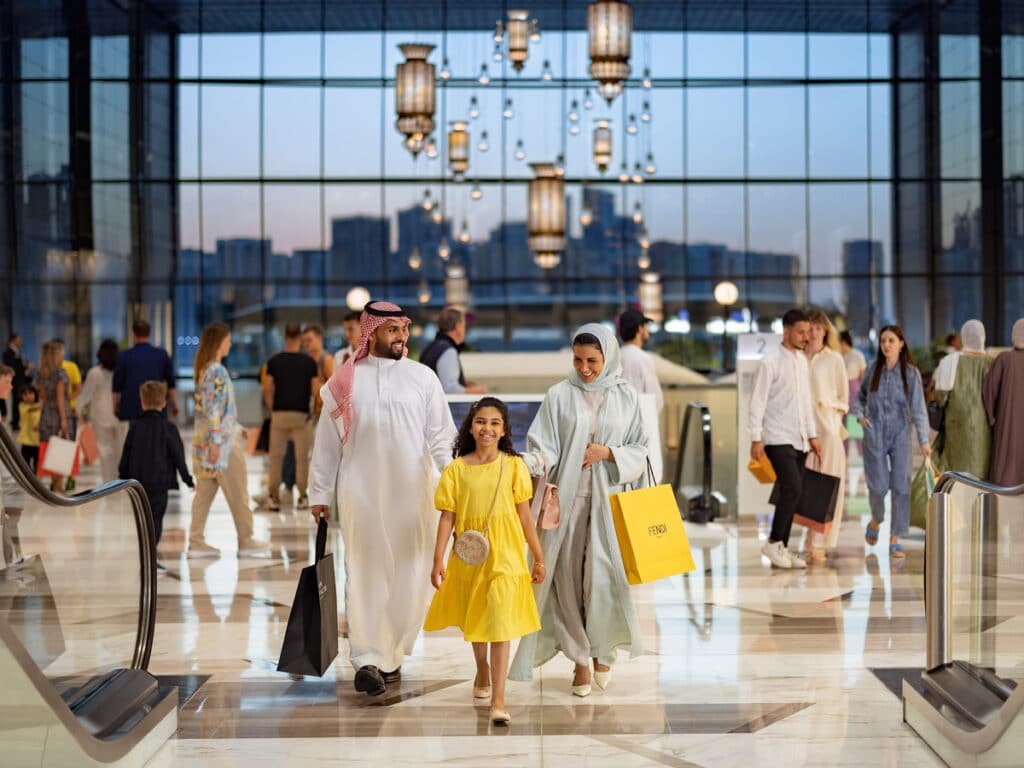
Why the UAE Is the Perfect Place for This
The UAE’s retail landscape is built for luxury lovers, but its competitive nature means opportunities for bargains are everywhere. Between the constant flow of tourists, the appetite for fresh collections, and the prestige of major global brands having a local presence, older stock moves fast — often into outlets or seasonal markdowns.
If you know where to look, and more importantly, when to look, luxury fashion here isn’t about how much you spend. It’s about how well you play the game.



